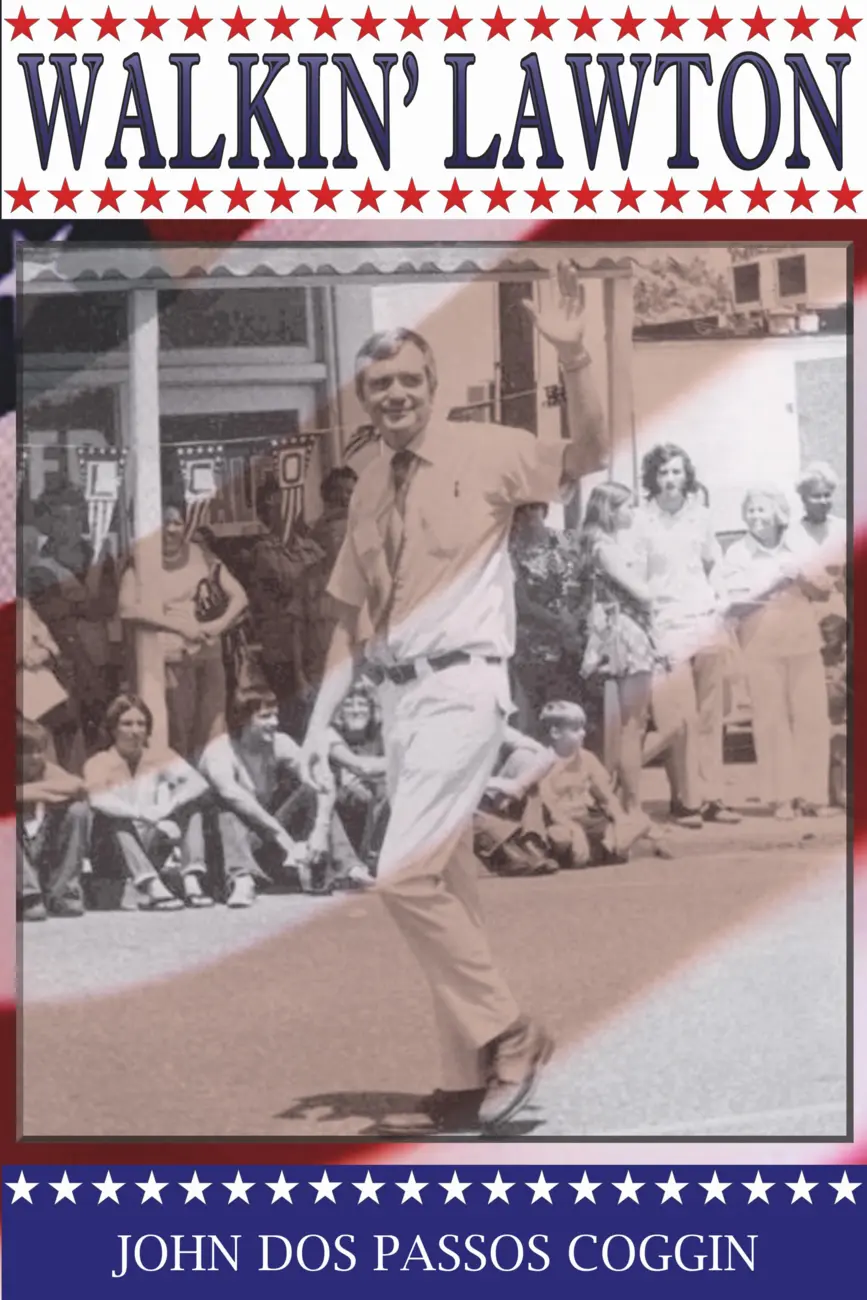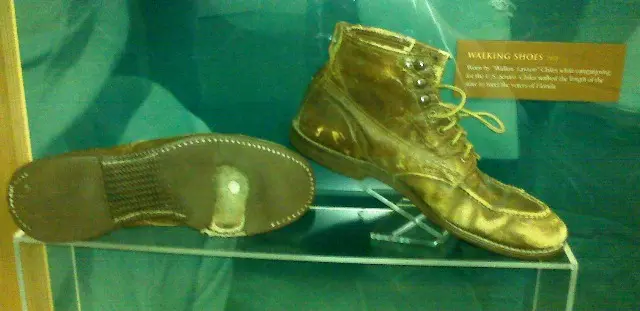A pair of tattered, well-worn boots with holes on the bottom and scrapes on the side is on display in the Florida Historic Capitol Museum in Tallahassee.
The boots belonged to “Walkin’ Lawton” Chiles, one of Florida’s most respected and influential politicians.
During his four decade career in the Florida House of Representatives, the Florida State Senate, the United States Senate, and as a two-term Governor of the state, Chiles worked for transparency and accountability in government, health care reform, children’s health and education, and successfully fought the advertising practices of the tobacco industry.
Chiles first gained widespread notoriety by walking the entire state during his 1970 campaign for Florida’s U.S. Senate seat. He walked 1,003 miles over 91 days, shaking hands with nearly 40,000 people. Chiles began his campaign with only 4% name recognition, and ended up winning the election.
Born in Lakeland, Florida in 1930, Chiles grew up watching politicians bring their campaigns directly to small town audiences, addressing crowds from gazebos in public parks.
“I think the unique quality of his boyhood in Lakeland is something that we don’t appreciate any more in this age of mass media, of 24-hour news,” says John Dos Passos Coggin, author of the book Walkin’ Lawton.
“Political engagement, attendance to political rallies that occurred in downtown Lakeland, in Munn Park specifically, was both entertainment and a source of information. It was as lively and entertaining to Lakelanders like Lawton Chiles as a trip to the movies or a trip to a baseball game. It was something that brought families together, and that families would continue to talk about at the dinner table after rallies.”
It was this personal style of political engagement that inspired Chiles to walk the state, engaging Floridians in a meaningful dialogue. The walk captured the attention of the media, catapulting Chiles from obscurity to fame in just a few months.
“It was something that changed him personally,” says Coggin. “He was no longer just an average Floridian who could fade into the crowd. He was no longer an average Florida politician who could fade into obscurity. The obligation he felt to Floridians, asking for their trust, person to person, shaking thousands of hands, the walk was a promise to Florida and he did his best to keep it.”
As Chiles walked back and forth across the state, and from one end to the other, the conversations he had with the people of Florida changed some of his key political perspectives. Most notably, his views on the Viet Nam War evolved.
“From its beginnings in Century, Florida on the Alabama border to its end in Key Largo in the furthest south Florida, it was a classroom for him where he allowed himself to be a student and allowed voters to be teachers,” Coggin says. “Perhaps the most visible impressionable change was on his Viet Nam policy where he changed over the course of the walk from a hawk to a dove.”
Chiles’ efforts to reform health care sparked a national debate that continues today. The successful “Truth” campaign that discourages teen smoking is the result of his litigation against the tobacco industry. He championed transparency in government that resulted in important legislation. His very frugal campaigns, which were always successful, are models for modern backers of campaign finance reform.
His ability to connect with people made Chiles one of Florida’s most popular governors. He defeated incumbent governor Bob Martinez in 1990, and survived a challenge by Jeb Bush in 1994. Chiles died of a heart attack in the Governor’s Mansion just a few weeks before the end of his second term.
Chiles is remembered fondly by diverse groups of people for his sense of humor and compassion, as well as his political successes.
“He not only reached across racial divides in the Panhandle and rural areas in Florida, he loved the way Spanish Florida spoke, he loved Cubans, he loved mixing with all types of cultures,” Coggin says. “I think that is what made him an enduring part of Florida’s political culture from decade to decade.”
Aspiring political leaders today might benefit from walking a mile, or perhaps a thousand miles, in Chiles’ shoes.
Dr. Ben Brotemarkle is executive director of the Florida Historical Society and host of the radio program “Florida Frontiers,” broadcast locally on 90.7 WMFE Thursday evenings at 6:30 and Sunday afternoons at 4:00, and on 89.5 WFIT Sunday mornings at 7:00. The show can be heard online at myfloridahistory.org.

